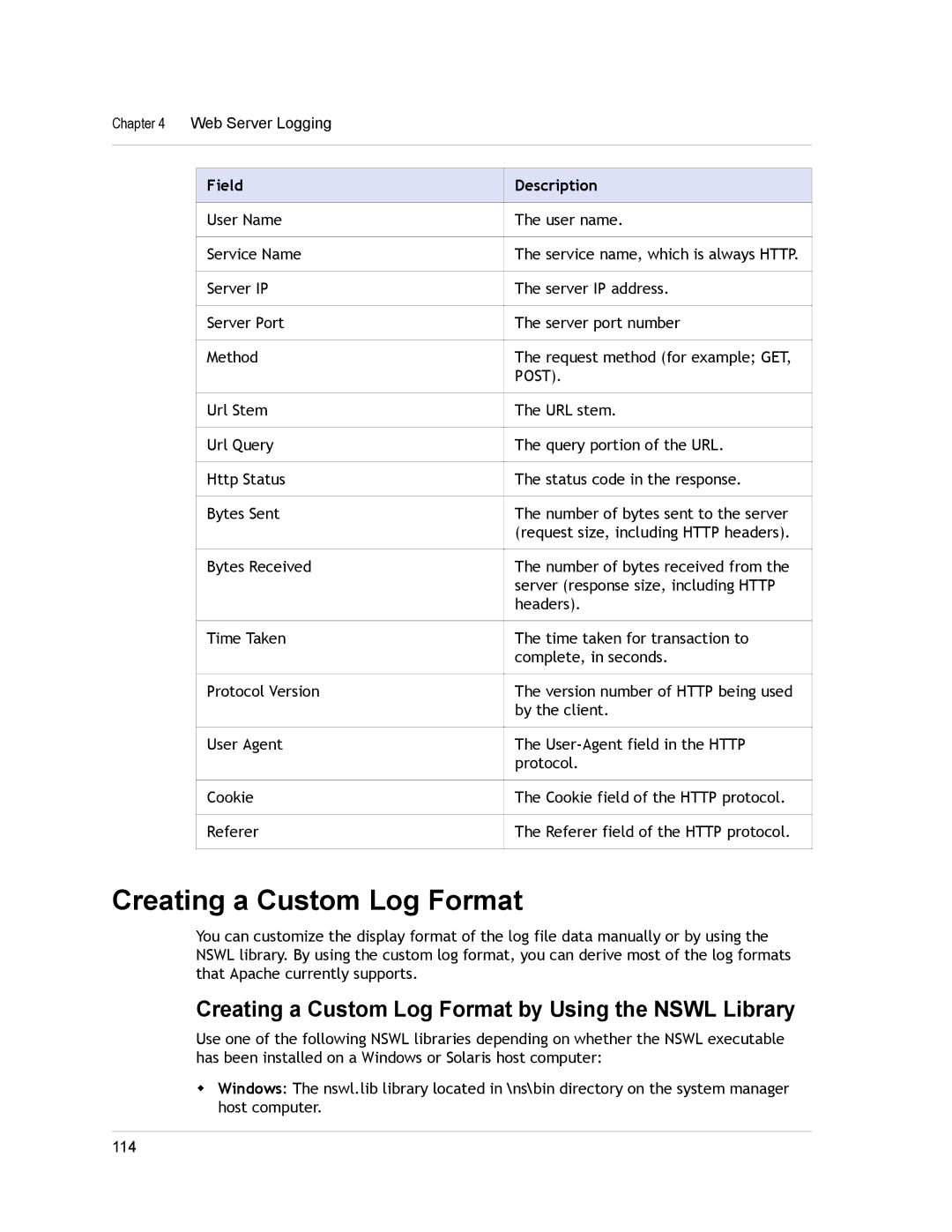
Chapter 4 Web Server Logging
Field | Description |
|
|
User Name | The user name. |
|
|
Service Name | The service name, which is always HTTP. |
|
|
Server IP | The server IP address. |
|
|
Server Port | The server port number |
|
|
Method | The request method (for example; GET, |
| POST). |
|
|
Url Stem | The URL stem. |
|
|
Url Query | The query portion of the URL. |
|
|
Http Status | The status code in the response. |
|
|
Bytes Sent | The number of bytes sent to the server |
| (request size, including HTTP headers). |
|
|
Bytes Received | The number of bytes received from the |
| server (response size, including HTTP |
| headers). |
|
|
Time Taken | The time taken for transaction to |
| complete, in seconds. |
|
|
Protocol Version | The version number of HTTP being used |
| by the client. |
|
|
User Agent | The |
| protocol. |
|
|
Cookie | The Cookie field of the HTTP protocol. |
|
|
Referer | The Referer field of the HTTP protocol. |
|
|
Creating a Custom Log Format
You can customize the display format of the log file data manually or by using the NSWL library. By using the custom log format, you can derive most of the log formats that Apache currently supports.
Creating a Custom Log Format by Using the NSWL Library
Use one of the following NSWL libraries depending on whether the NSWL executable has been installed on a Windows or Solaris host computer:
wWindows: The nswl.lib library located in \ns\bin directory on the system manager host computer.
114
